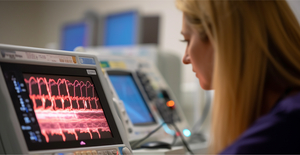H Pylori Test near me
Own a clinic? Add your location.
Help patients book appointments with you on Solv. It's free!
14 instant-book locations

Labcorp, Columbus
Labcorp



Quest Diagnostics
Quest Diagnostics
Self-pay pricing
Clear self-pay prices
No more surprise bills. Solv is committed to making getting healthcare as easy as buying groceries at the store, including knowing the price of care upfront.



Quest Diagnostics
Quest Diagnostics
Self-pay pricing
Clear self-pay prices
No more surprise bills. Solv is committed to making getting healthcare as easy as buying groceries at the store, including knowing the price of care upfront.

Quest Diagnostics
Quest Diagnostics
Self-pay pricing
Clear self-pay prices
No more surprise bills. Solv is committed to making getting healthcare as easy as buying groceries at the store, including knowing the price of care upfront.





Quest Diagnostics
Quest Diagnostics
Self-pay pricing
Clear self-pay prices
No more surprise bills. Solv is committed to making getting healthcare as easy as buying groceries at the store, including knowing the price of care upfront.

Reproductive Diagnostics
Reproductive Diagnostics
St. Annes outpatient diagnostics lab
St. Annes outpatient diagnostics lab
Mount Carmel Lab Services Center
Mount Carmel Lab Services Center

CareFirst Urgent Care, Westerville Plaza
CareFirst Urgent Care

Scioto Urgent Care
Scioto Urgent Care
Own a clinic? Add your location.
Help patients book appointments with you on Solv. It's free!
About H Pylori Tests
An H. pylori test can be used to confirm whether you have an H. pylori bacterial infection. Your doctor may order this test if you are experiencing digestive disorder symptoms so you can be treated as early on as possible to reduce the risk of serious complications. This test can also determine whether current treatments for an H. pylori infection are working as expected.
There are several H. pylori tests, including a breath test, blood test, stool test, and biopsy.
During the breath test, your doctor will have you swallow a special substance that the body converts into carbon dioxide. You will then exhale into a breath test device that can detect the presence of H. pylori. Your doctor may ask you to stop taking certain medications for up to two weeks before the H. pylori breath test, as some medications may affect results.
During the blood test, your doctor will use a tiny needle to draw a small sample of blood from your arm. The blood sample will then be tested for H. pylori antibodies to determine whether you have had an infection.
During the stool test, your doctor will ask you to provide a sample of feces, which can reveal whether you have an H. pylori infection or if it has been successfully cured following treatment.
During the biopsy test, your doctor will remove a small sample of tissue from the lining of your stomach. This test is usually performed at a hospital or clinic because it is more invasive than other H. pylori tests. Your doctor will give you an anesthetic and have you lie on an operating table. A long, thin tube called an endoscope will be inserted into your mouth and throat to extract a tissue sample from your stomach lining. The sample will then be evaluated at a lab to determine whether you have an H. pylori infection.
If you test positive for H. pylori, your doctor will contact you to discuss your available treatment options. Your doctor may also perform additional testing at a later date to confirm whether you still have H. pylori.
H Pylori Test FAQs
How do you test for H. pylori?
H. pylori can be detected using several test methods, such as with a blood test, stool test, breath test, and biopsy. Each of these tests works differently to detect H. pylori and involve their own unique preparation steps. Your doctor or the H. pylori testing provider can give you more information about what your test will involve and how to prepare.
How much does an H. pylori test cost?
The cost of an H. pylori test is based on different factors, including the type of test being performed, testing provider rates, geographical location, and whether the test is covered by your health insurance plan. The best way to determine the cost of an H. pylori test is to contact the testing provider directly to confirm rates or to contact your health insurance provider for more information about your benefits and coverage.
Does insurance cover H. pylori testing?
Many health insurance plans cover some or all costs associated with H. pylori testing, especially if your doctor determines that this test is medically necessary based on your symptoms and health condition. Contact your insurance provider to confirm whether your plan covers H. pylori testing and to find out whether you need to pay any out-of-pocket costs for testing.
What is an H. pylori test?
An H. pylori test is generally used to detect the presence of H. pylori bacteria in the digestive tract. H. pylori can cause several types of digestive infections and disorders, including gastritis, peptic ulcers, and stomach cancer. An H. pylori test may also be used to rule out H. pylori infections and to assess whether current treatments for H. pylori conditions are working.
Who should get an H. pylori test?
Anyone who is experiencing digestion problems and symptoms of a digestive disorder can benefit from having an H. pylori test to diagnose or rule out related conditions. Symptoms of a digestive disorder include abdominal pain and bloating, nausea, vomiting, diarrhea, appetite loss, and weight loss. Those who are currently being treated for an H. pylori infection may also get an H. pylori test to determine whether their treatment is working as planned.
What does it mean if you test positive for H. pylori?
H. pylori infections are completely treatable. If you test positive for H. pylori, your doctor will discuss all your available treatment options and recommend the best one. H. pylori infections can be effectively treated using antibiotics and acid-reducing medicines. After your treatment regimen has ended, your doctor may order additional testing to confirm whether the bacteria has cleared from your system.
How should I prepare to take an H. pylori test?
Each H. pylori test comes with its own preparation steps. The blood test requires no preparation. If you are taking a breath, stool, or biopsy test, your doctor will ask you about medications you are currently using and ask you to stop taking certain drugs for up to two weeks before your test if they are known to interfere with results. If you are taking the biopsy test, you may be required to fast for at least 12 hours beforehand.
How long does it take to get H. pylori test results?
Results from the H. pylori blood test usually come back within 24 hours, while results from the breath and stool tests can come back within a few hours. Results from a biopsy test using endoscopy typically come back within 48 hours, while results from a cultured biopsy sample come back within 10 days. The H. pylori testing provider can give you a more accurate estimate regarding when you can expect to get your results.
Where should I get an H. pylori test?
H. pylori testing is available from various healthcare providers, including hospitals, urgent care clinics, and walk-in laboratories. Your doctor may perform an H. pylori test at the clinic or refer you to a provider that offers this service. You can also use Solv to locate top-rated H. pylori testing providers in your area if your doctor does not refer you to a specific one.
How accurate are H. pylori tests?
An H. pylori biopsy test, which involves taking a sample of tissue from the stomach lining, is the most accurate way to determine whether you have an H. pylori infection. Evidence also suggests that a stool antigen test is another highly accurate testing method for diagnosing an H. pylori infection. Your doctor can provide you with more insight as to which testing method is the most accurate based on the latest scientific findings and evidence.

Updated on Jan 25, 2025
Solv has strict sourcing guidelines and relies on peer-reviewed studies, academic research institutions, and medical associations. We avoid using tertiary references.
Related searches
Everyday Healthcare, Simplified
Expert advice to help you live your best life




